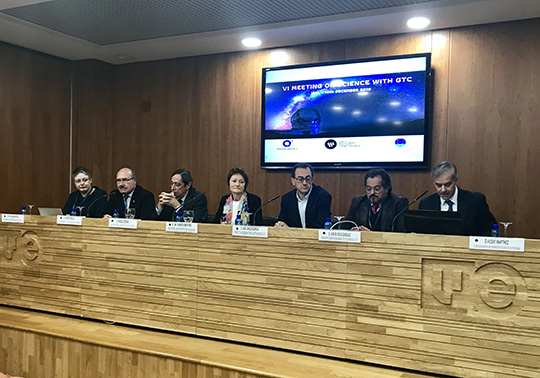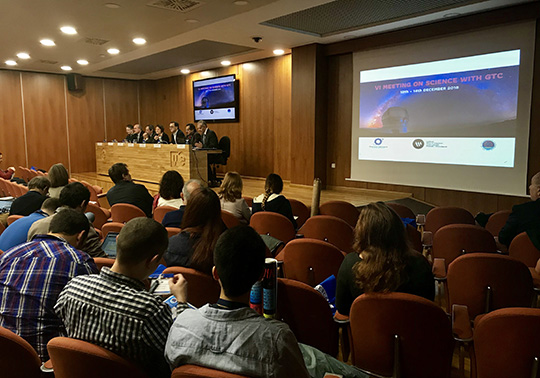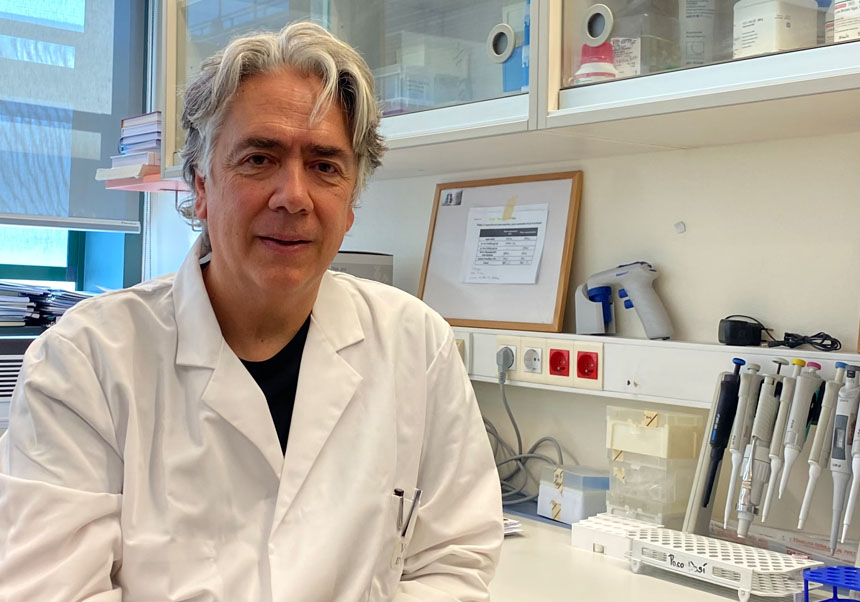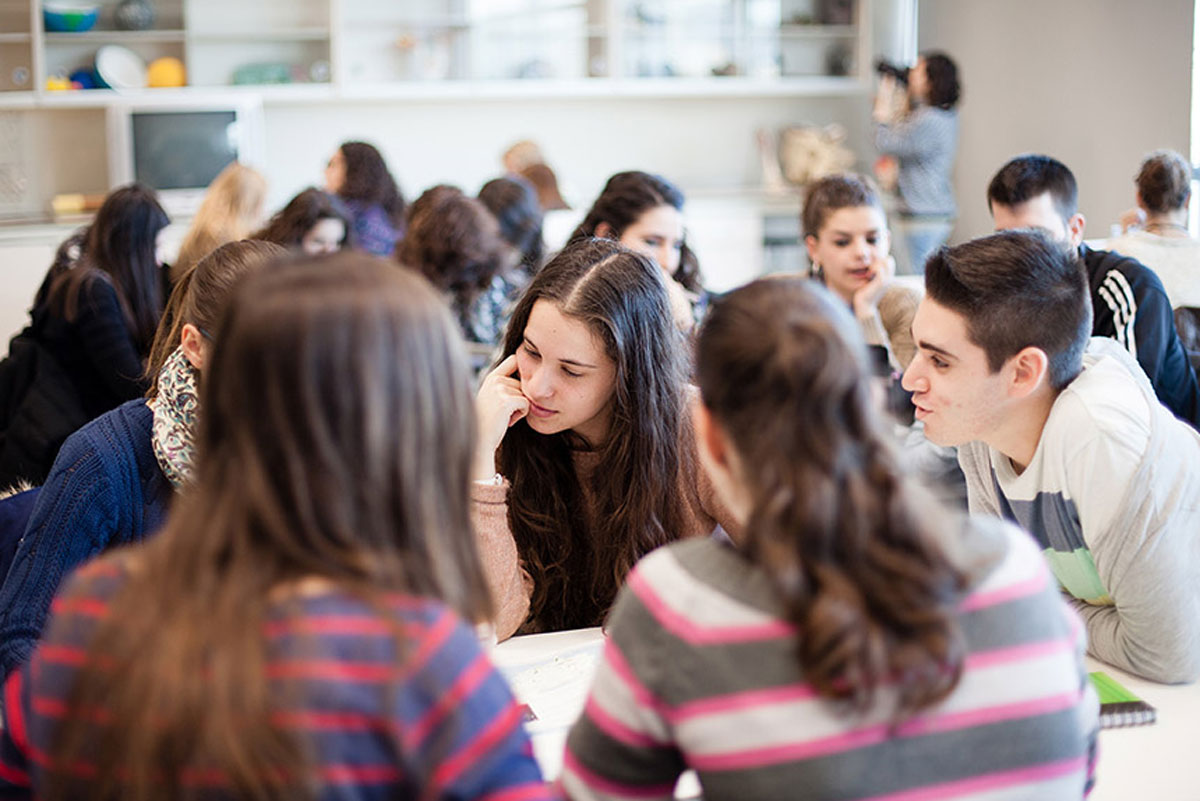Valencia holds the 6th International Conference of the Gran Telescopio Canarias
- Office of the Principal
- December 12nd, 2018

More than a hundred astrophysics of the United States, Mexico, China and Spain will debate on the last astronomical discoveries of the GTC, which has made Spain a global power in the field of Astrology.
More than a hundred astrophysics will meet in Valencia this week to discuss the last discoveries of the Gran Telescopio Canarias (GTC) in the 6th edition of the scientific meeting of the GTC. They will discuss the future plans of the Special Technical-Scientific Facility (ICTS). It is organised by the Astronomical Observatory of the Universitat de València with the collaboration of the Institució Alfons el Magnànim Centre Valencià d’Estudis i d’Investigació.
The opening ceremony was presided over by the Principal of the Universitat de València, Mª Vicenta Mestre, the General Secretary of Coordination for Political Science of the Ministry of Science, Innovation and Universities, Rafael Rodrigo; the Director of the Astrophysics Institute of Canarias, Rafael Rebolo; the President of the Monitoring Committee of the GTC, José de Jesús González; the President of the Scientific Organizing Committee, Mª Rosa Zapatero; and the Director of the Astronomical observatory of the Universitat de València, José Carlos Guirao; and the professor of the Universitat de València and member of the Organiser Committee, Vicent J. Martínez.
The Principal Mª Vicenta Mestre remarked the importance of the researching role of the Universitat de Valencia. She also pointed out that it was among the best 500 universities in the world according to the Ranking of World Universities and in the 3-6 rank in Spain according to the National Taiwan Ranling, Leiden Ranking and URAP.
The General Secretary Rafael Rodrigo highlighted the support provided by the Ministry to the GTC in order to continue carrying out first rate research. That is the reason why we have a specific finance plan. “The GTC is a perfect example of the collaboration between the academic world, particularly the universities, and the public administrations of the Regional Communities and the State”, remarked Rodrigo.
Rafael Rebolo, director of the Astrophysics Institute of Canarias, added that during the last 10 years the GTC has always been in the border between science and knowledge, and has been pioneer in many of the progress acquired. Additionally, he pointed out one of the challenges that the programme will face: defining an exploitation plan for the following years.
The President of the Monitoring Committee of GTC, José de Jesús González, assured that meetings like this stimulate new collaborations and discoveries where the GTC is an essential and basic vehicle for research.
The Director of the Astronomical Observatory of the University José Carlos Guirao reminded that the Observatory dates back to the 18th century and has taken part in some of the last astronomical researches such as the discovery of gravitational waves.
The conference will take place in the Head office of ADEIT until Wednesdays 14th December. It will focus on three tools that have been recently added.
The main objective of the 6th meeting (as it is explained by the professor in Astronomy and Astrophysics of the Universitat de València and President of the Organising Local Committee, Juan Fabregat) is that the participants share the last results, learn about the works of the GCT, the proposals of new generation tools and promote current and future collaborations between astronomers that work at it.
The Gran Telescopio de Canarias is located in the Roque de los Muchachos Observatory in La Palma. It is the largest astronomical observatory in the World. It is a Spanish facility. Nonetheless, it counts on contributions from Mexico and the United States. It started its mission in 2007, which consists in looking for black holes, the first conditions of the Universe following the Big Bang, the stars and the farthest galaxies in the Universe. “Spain is a global power in Astronomy”, explains Juan Fabregat.
Among the attendees, there were specialists from the three nationalities working on the GTC (Spain, USA and Mexico) as well as China, which has been financing the new tools in the last years.
More information: https://congresos.adeituv.es/gtc2018/
File in: Recerca, innovació i transferència




















